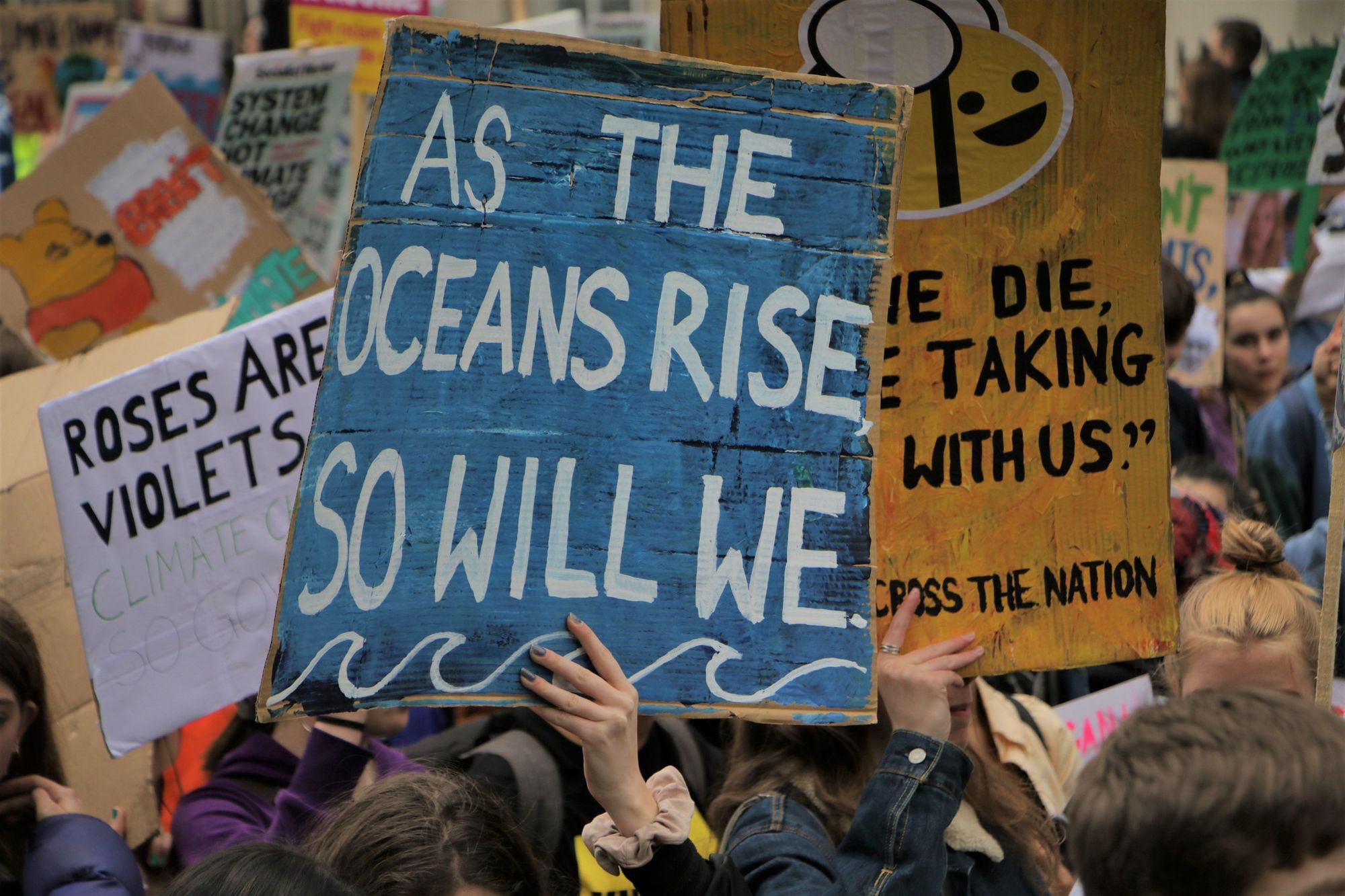the poetry of the planet
She closed her eyes and listened to the poetry of the planet, murmuring the verses of a new poem she was working on, and creating, along with so many others humans, the golden rays of change and hope that would soon light up the world.

‘In a gentle way, you can shake the world.’- Mahatma Gandhi
On the edge of the beach, there sat a girl with overly large glasses and hair as brown as the earth. The waves of the wild sea leapt forward to lick her bare feet, to spit salt in her wet eyes. Her gaze was fixed on the horizon, and her mind was lost in thought, as she tried to make sense of the swirling, ever-changing, tempestuous world in which she lived. She thought, thought of her village being swept away by the crying river, the sky, which seemed to have been perpetually painted with grey, the droughts, which were so common in her new, crowded city, and the people, oblivious, ignorant, powerless-
Splash.
The sky was weeping.
Weeping with her. For the future that none of them would witness.
She gulped mouthfuls of sea air, trying to calm herself down. She always came to the natural world when she wanted to cool her spirits, for this was the only place where, free from the noise and cacophony of the modern world, she could hear her thoughts and make sense of them. She closed her tired eyes and listened to the voice of the planet: to the crunch of the sand grains, to the rhythm of the rising seas, to the movement of the molecules, to the soft whisper of the blue mist. These sounds filled her with a sense of suppressed panic and renewed determination; she had to save the planet. She had to restore nature to its former glory. She had to protect the world that gave her being.
But how? In this world of noisy protests and loud speeches, of traditional power structures and manipulative politics, how was she, a tiny, insignificant being, to make her voice heard? And suddenly, strangely, her mind turned to the abandoned first draft of a poem she had begun working on a few weeks ago. Could poetry be her voice? Could she express her fear, her fury, her frustration, and her hope through poetry? Could poetry help her prove to the world that she could be loud too? And that she, in her own way, could shake the world?
There was only one way to find out.
Rui devoted herself completely to the writing of poetry. She wrote, edited, scratched out lines, revised, tore pieces of paper, rewrote, and polished her poems to raw, imperfect perfection. She found immense comfort and consolation in writing these poems, in expressing her environmental guilt, in nourishing her environmental imagination. And not only did these poems console her, but they also filled her with hard-won resilience and fiery, indomitable hope.
One day, she mustered enough courage to submit these poems to a local magazine. It was hard to share these poems, these pieces of her soul, with the outside world, but as she let her long-caged birds free into the vast, wild world, she felt a sense of pride. Pride in the fact that she had done her bit for the planet.
Her poems were published in the magazine, and they caused a stir in her locality. They were performed at various climate strikes, and they even moved the mayor to such an extent that he agreed to adopt an environment conservation bill in the local town hall.
Her poetry had not caused a revolution, but it had, at least, heralded the beginning of a rosy sunrise. She closed her eyes and listened to the poetry of the planet, murmuring the verses of a new poem she was working on, and creating, along with so many others humans, the golden rays of change and hope that would soon light up the world.

***
I have narrated to you one story among thousands- of the humans who have found channelised the power of poetry to bring about change. According to Craign Santos Perez, poetry can help us 'put a human face and emotional experience on abstract natural disaster and climate crises.' It can humanise environmental themes and make complex facts, data, and terminology more intelligible. Moreover, poetry can turn grief and pain into something beautiful and collective. It can bring us all together by emphasising the emotional havoc wreaked by climate change, by breaking barriers and by fostering a sense of human connectedness at the time we need it the most. But most importantly, poetry can give everyone a voice, the space, and the power to tell his/her own climate story. Through poetry, we can make people see the world the way we do, feel what we feel, and experience what we experience.

As Gary Synder once said, in this time of environmental crisis, what we “ultimately need most are human beings who love the world.” And this, I believe, is the fundamental function of ecopoetry: to construct a richly layered web of feelings, experiences, and perspectives, to offer one a unique insight into life, and to create humans who love this world in all its wild, glorious complexity.